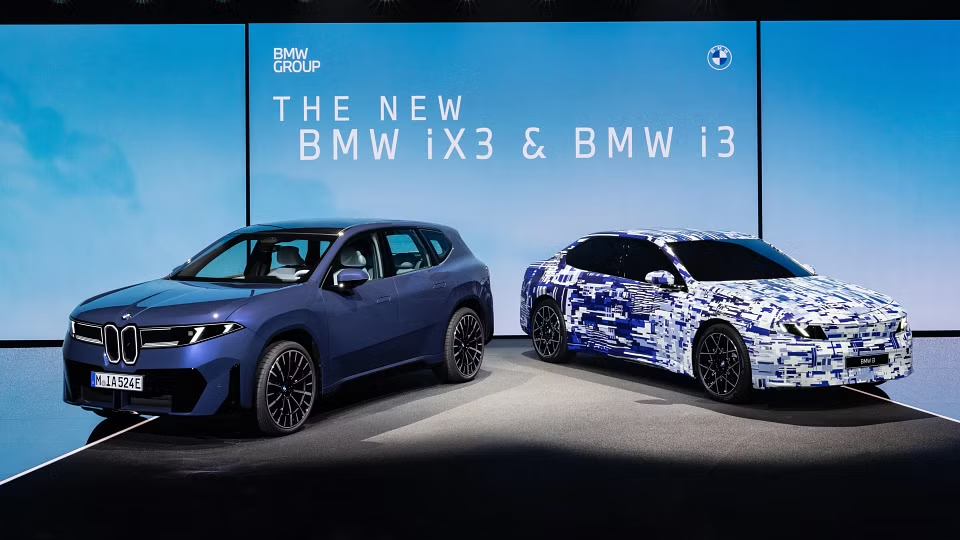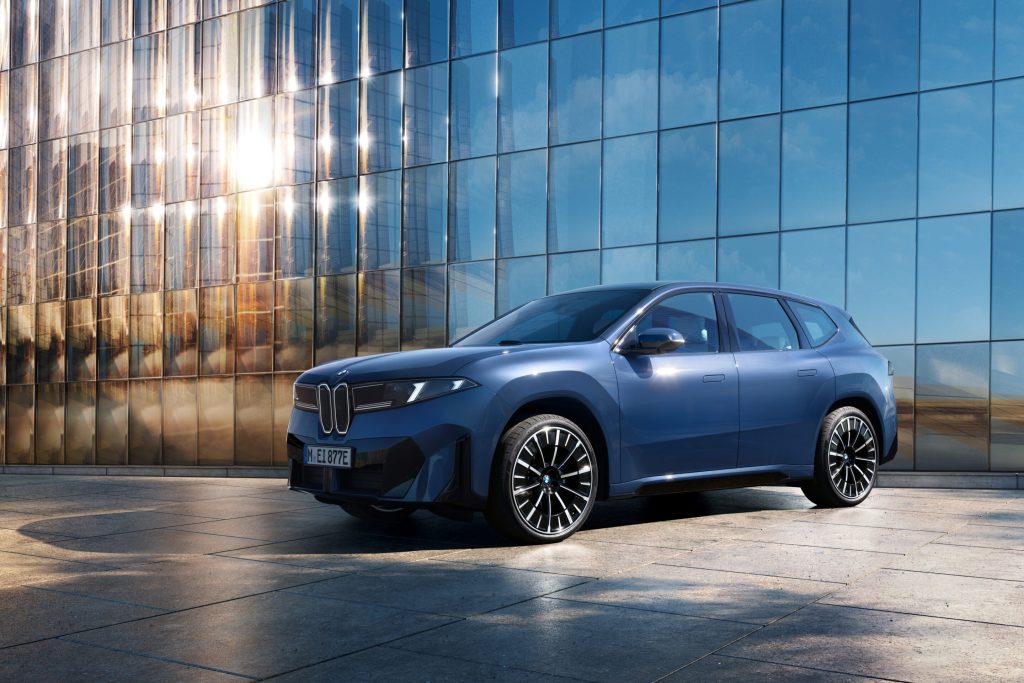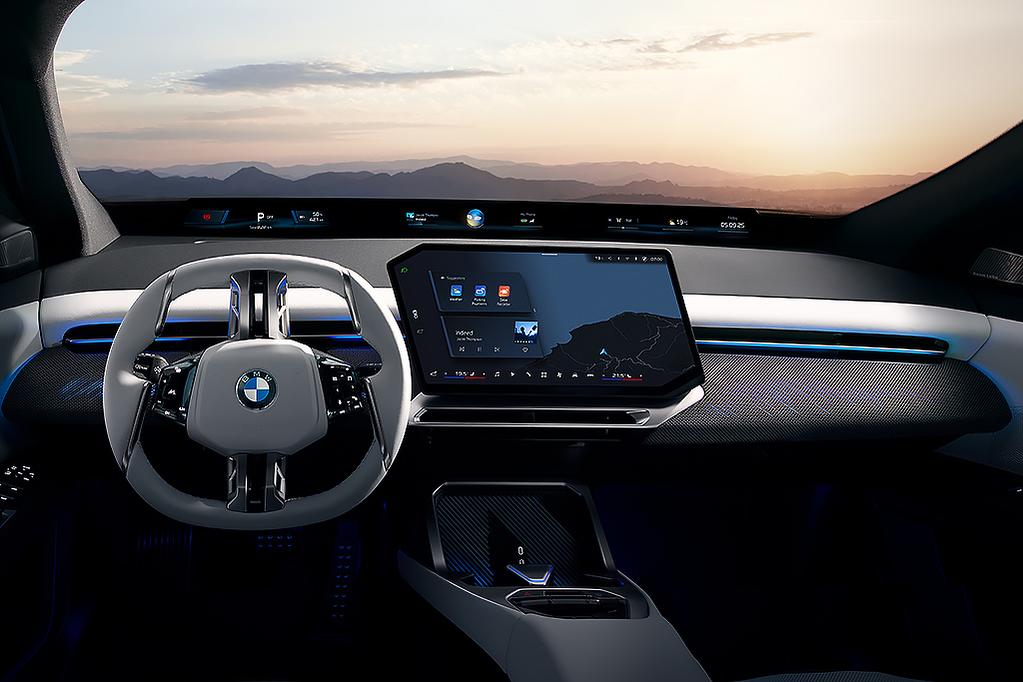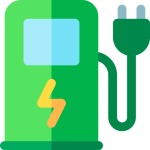
BMW has launched the most ambitious product and technology programme in its modern history: Neue Klasse, a ground-up, software-defined family of electric vehicles and a new vehicle architecture intended to underpin the company for the next decade. Announced publicly in recent years and shaped by strategic decisions taken from 2021, the programme carries a headline price tag of roughly €10 billion and a promise that BMW will emerge both technologically and commercially competitive against established European rivals, Tesla – and an increasingly assertive group of Chinese automakers.
Why BMW is spending big
BMW describes the investment as the largest in its history and necessary to “skip a generation” of cars. The rationale is straightforward: by re‑engineering the car from the battery cell up, BMW aims to deliver significantly improved driving range, lower production costs per kilometre and a new in‑car software environment that will let it roll out features and services more quickly. Executives told Australian and international media the scale of the programme was uncomfortable – “a horrible amount,” as one senior executive put it – but essential.
Joachim Post, BMW board member for development, was blunt when asked about the risks: “It will not fail.” His confidence reflects both BMW’s long manufacturing heritage and the company’s bet that the new platform and technologies will create a clear product advantage at launch.

What Neue Klasse promises
At its core, Neue Klasse is not a single car but a platform strategy: new vehicle underpinnings, a new electrical and battery architecture, centralised computing and software, and a refreshed approach to vehicle styling and interior human-machine interfaces. BMW has publicly committed to:
- New battery-cell formats and a structural approach to the battery that aim to increase energy density and charging speed while reducing costs.
- A centralised software stack that can be updated and scaled across models, enabling over-the-air feature delivery and ongoing optimisation.
- A family of models spanning compact hatchbacks through to SUVs, with multiple body styles and performance levels.
- Significant range improvements; BMW has discussed target ranges to compete with the very best in the industry, with some marketing materials and briefings referencing figures in the higher hundreds of kilometres under optimistic testing cycles.
BMW has stated the Neue Klasse line-up will begin rolling into showrooms from the mid-2020s. Executives have indicated the new technology will also “trickle down” to internal-combustion-engine (ICE) and hybrid models in the fleet where appropriate – for example, in electronics, infotainment and certain drivetrain efficiencies.

The geopolitical and market pressure: China’s rise
A major element behind BMW’s urgency is the rise of Chinese automakers. Over the last five years, brands such as BYD, NIO, XPeng and others have expanded rapidly, combining highly competitive pricing with strong software and battery technology. BMW executives have acknowledged that Chinese brands are a real and present competitive threat as they expand into Europe and other global markets.
Regulators in the European Union have taken notice. The EU opened investigations into alleged unfair subsidies for Chinese-made EVs and has signalled it is willing to consider trade remedies if undercutting is found. That activity has changed the competitive calculus but not the strategic imperative: BMW believes that only a significant technological leap will ensure it can compete not only on price but on brand value and driving dynamics.
What this means for petrol and hybrid BMWs
Although Neue Klasse is a fully electric architecture, BMW has been explicit that ICE, hybrid and petrol models remain part of its near‑term strategy. Engineers plan to cascade portions of Neue Klasse technological advances – improved electronics, software, and certain efficiency measures – into conventional models so that customers who are not yet ready to switch to battery electric vehicles (BEVs) continue to enjoy tangible improvements.
This dual-path approach reflects realistic market dynamics: EV adoption remains uneven globally and in markets such as Australia, uptake is accelerating but still influenced by charging infrastructure availability, energy prices and consumer preferences.
Implications for Australia
For Australian buyers, BMW’s move matters in several ways:
- Choice and capability: Neue Klasse should bring a wider range of premium EV choices to market with improved range and software capabilities.
- Pricing and competition: If BMW’s investment succeeds, the company will be better placed to compete with Chinese brands already offering feature-rich EVs at lower price points. That competition could put pressure on pricing across the premium segment.
- Infrastructure and policy sensitivity: BMW’s global flexibility means it can tailor offerings to markets with slower public charging rollout by continuing to sell hybrid and petrol models with updated tech. For Australia, where public charging networks are expanding but still patchy in many areas, that flexibility is commercially sensible.
- Aftercare and updates: The new software-first approach will raise expectations for over-the-air updates and in-life service improvements, a trend Australian buyers are likely to come to expect across the premium segment.
Financial risk and corporate confidence
The size of the investment has raised questions about financial risk. BMW’s board and executives have argued the programme is financed as part of normal multi-year capital planning and that the company’s balance sheet and operational experience mitigate the danger of failure. In public remarks, BMW has stressed that the investment is spread across product families and incremental updates, which reduces single-point risk.
Still, the move is a high-stakes response to industry shifts that include faster innovation cycles, software competition, and the entry of new global players. The final outcome will depend on execution: delivering the promised battery and software performance, controlling costs, and aligning the product portfolio with real-world consumer demand.
Conclusion
Neue Klasse is BMW’s statement of intent: a bold, expensive and multi-year push to chase leadership in the electric‑vehicle era rather than cede that position to newcomers. For Australian consumers and the local market, the plan promises more technologically advanced BMWs and a more intense competitive environment – which should translate into better products and potentially better prices. But the programme is also a reminder that the transition to electrification is as much about software, supply chains and policy as it is about hardware. If BMW can deliver on its promises, it could secure its premium status for the next generation. If it stumbles, the consequences for margins and market share could be significant.
FAQs
What exactly is Neue Klasse and when will the cars arrive?
Neue Klasse is BMW’s next-generation vehicle architecture focused on battery-electric vehicles, centralised software and new battery cell formats. Production vehicles built on the platform began to roll out in the mid-2020s, with broader model introductions staged through the latter half of the decade.
How much is BMW investing and why is that significant?
BMW has committed about €10 billion (roughly $AU17.8 billion) to the Neue Klasse programme. It’s significant because it’s the largest strategic investment in the company’s history, intended to fund new platforms, battery tech, software stacks and a suite of new models.
Will BMW stop making petrol cars?
No. BMW plans to continue selling petrol and hybrid models in markets where buyers prefer them or where charging infrastructure lags. Elements of Neue Klasse technology – particularly software and electronics – are expected to flow into ICE and hybrid models.
Does this move protect BMW from Chinese competition?
It is intended to. Neue Klasse is designed to give BMW technological advantages in range, charging and software. However, Chinese brands remain highly competitive on price and technology, and the EU’s trade investigations into Chinese EV subsidies underscore the complexity of that competition.
What does Neue Klasse mean for Australian buyers?
Australian buyers should expect more advanced BEV offerings from BMW with improved range and software features, as well as continued availability of hybrid and petrol models outfitted with upgraded technology. The company’s product rollout will also be sensitive to local charging infrastructure and energy prices.
About EV Evolution
EV Evolution is the leading online platform dedicated to Australian electric vehicle owners and enthusiasts. We foster a vibrant community, delivering essential EV news and insights, and enhancing user engagement through our innovative, AI-powered chatbot for dynamic discussions. Our mission is to empower Australian electric vehicle owners and enthusiasts by fostering a vibrant, AI-driven online community that connects, informs, and advances the nation’s electric vehicle landscape.




 and then
and then 